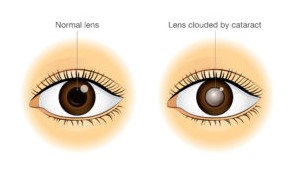Categories
- Bariatric Surgery (11)
- Black Fungus (5)
- Bone Marrow transplant (3)
- Brain Tumor Surgery Navigation Technology (20)
- Cardiac Surgery (66)
- Cardiology (97)
- Computer navigation technology for joint replacements (20)
- Covid Vaccination (17)
- Critical Care (2)
- Dental (19)
- Dermatology (31)
- Dialysis Support Group - “UTSAAH” (11)
- Dietitian (33)
- Emergency Medicine (4)
- Emotional Health (11)
- Endocrinology (33)
- ENT (20)
- Gastroenterology and GI Surgery (53)
- General and Laparoscopic Surgery (21)
- General Surgery (4)
- Gynecology & Obstetrics (183)
- Hematology (20)
- Internal Medicine (294)
- Kidney Transplant (50)
- Kidney Transplantation (20)
- Lung Cancer (8)
- Minimal Invasive Surgery (1)
- Mother & Child (20)
- mucormycosis (5)
- Nephrology (61)
- Neurology (147)
- Neurosurgery (68)
- Nutrition and Dietetics (107)
- Omicron Variant (1)
- Oncology (288)
- Ophthalmology (10)
- Orthopaedics & Joint Replacement (86)
- Paediatrics (59)
- Pediatric Nephrology (3)
- Physiotherapy (5)
- Plastic & Reconstructive Surgery (6)
- Psychiatry and Psychology (90)
- Psychologist (28)
- Pulmonology (72)
- Rheumatology (13)
- Spine Services (21)
- Transradial Angioplasty (16)
- Urology (84)
Query Form
Posted on Apr 19, 2022
Cataract a preventable cause of blindness
Cataract a preventable cause of blindness
A cataract is the most common cause of visual impairment globally than any other eye condition or disease. In India cataract is responsible for 50-80% of bilaterally blind and this is avoidable and treatable.

What is a cataract and its presentation?
In the Cataract part of the lens or its capsule become opaque or cloudy. Light does not pass through easily and vision becomes blurry like looking through a fogged-up window. The cloudier the lens, the worse the vision will be. Apart from cloudy vision, cataracts may cause glare from the headlight of the car or lamps. It may cause difficulty in night driving. The patient may complain of double vision in one eye or may give a history of frequent change of glass prescriptions. Near vision may improve for some time.
What are the causes of cataract?
A cataract is the normal part of aging, the progress of which can be accelerated by systemic diseases like diabetes, etc. Cataract can also happen after an eye injury, as a result of eye disease, after the use of certain medicines like steroids, alpha agonists, etc. Sometimes children are born with cataracts.
What are the treatment options for cataract?
Surgery is the mainstay of treatment. It is indicated when the vision loss caused by a cataract affects their quality of life or hampering their day to day activities. It is better to remove the cataract when it is immature as it reduces the length of surgery and recovery time. Left untreated it can lead to disabling vision loss. Although it is never too late to have a cataract removed.
The operation involves removing the cloudy lens from the eye and putting an artificial lens in its place. Some patients may require glasses after surgery, depending on the type of intraocular lens placed.
Various types of Intraocular lens
- Monofocal – set for one level of vision usually distant.
- Multifocal – Set for providing distant and near vision.
- Accommodating lens- Similar to the natural lens allows the eye to focus on distant or near objects.
- Toric- More power in one specific region of the lens
Femto laser-assisted cataract surgery is a newer technology in cataract surgery
Care After surgery
For most patients, vision improves almost immediately, they can resume their daily activities as soon as they get home. Some may have blur vision, soreness, and discomfort which may take a couple of days to go. It takes 4 to 6 weeks to recover completely and some might take longer. Eye drops to be instilled as advised.
- Patient should avoid dust, strenuous activities, putting water in the eyes, rubbing their eyes.
- Should report immediately to the hospital if redness, pain, discharge, and blurring of vision appear.
